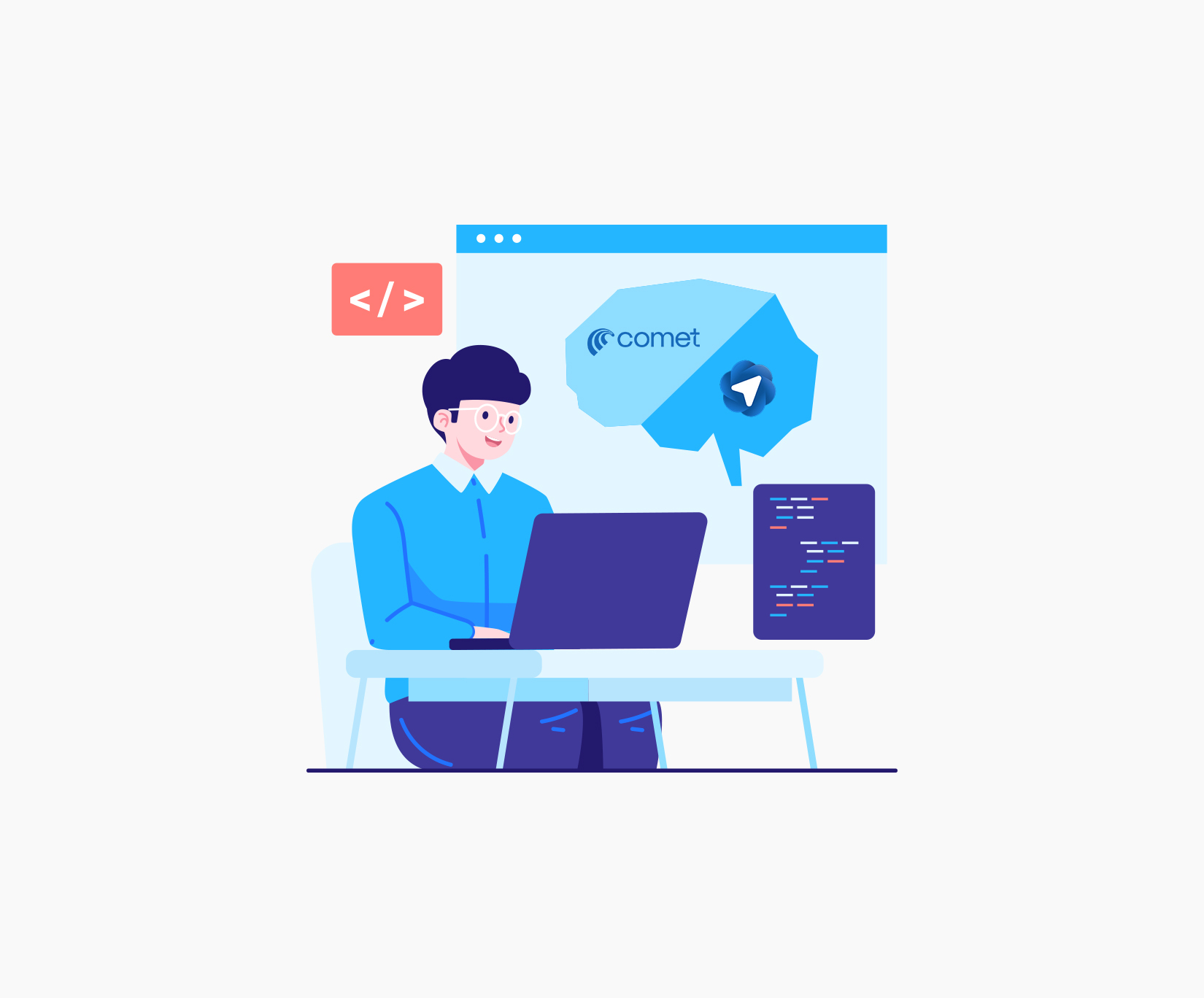The Rise of AI-Powered Browsing
Conventional browsers typically depend on some user input and manual navigation. AI browsers, including Atlas and Comet, leverage machine learning, predictive suggestions, and real-time content generation. While both AI browsers provide results, they read the query and attempt to provide assistance or service to the user.
When comparing performance, Atlas vs Comet, both seek to provide a user experience and engage with users based on contextual awareness. For example, Atlas aims to promote productivity, which is achieved through summarising content, automating research, changing lessons on the fly, and syncing knowledge and skills through any device.
Comet uses a more conversational approach, which includes some conversational AI interaction that is akin to chatting through interactive dialogue generation while browsing. This conversational model has made many users see Comet as not just a browsing tool but also a ChatGPT alternative for quick AI-driven insights while exploring the web.
This advancement in AI-driven technologies has sparked a new category: the best AI search browser. Instead of being a static navigational platform, users will find an interactive information session where the browsing session feels more like a collaborative experience.

How Atlas Redefines the Browsing Experience
Atlas has rapidly grown into a tool for academics and professionals who appreciate precision and functional integration. Highlights for Atlas performance revolve around contextual awareness and minimal distractions. On several comparisons of Atlas vs Comet performance, Atlas showed faster rendering times and smoother synchronisation across devices.
Moreover, Atlas encompasses document summaries, inline translations, and smart citation mechanisms that earn it top rank for those considering options for technical or academic situations. In fact, these features give it a clear advantage for users pursuing functionality of a balance of speed and precision. Atlas expressly represents the performance differential in multitasking while managing systems.
Additionally, the privacy controls are comparable to the most secure options in Chrome. Specifically, Atlas processes queries on the device securely using localised models rather than collecting large amounts of behavioural data. Atlas is among the best AI search browser destination options for privacy-favourable users.
How Comet Competes Through Conversational AI
While Atlas excels in performance, Comet excels at interactivity. Comet is built around a browsing experience that is totally about dialogue. Rather than needing to type multiple queries, the user can converse with the tool, asking follow-up questions within the same search session.
The conversational assistant built into Comet is its biggest strength. When users compared the performance of Atlas and Comet, users expressed their positive surprise regarding how easily Comet understood context and re-addressed the answer. Real-time summarisation is included, as is transparency about sources by augmenting the AI-generated answer with links and citations next to the answers.
Comet also felt more visually dynamic. The overall interface is well-designed and adopts a modular layout to allow the browsing experience to fit the user’s first-hand information habits- practising topical threads. The design and power of its conversational capabilities provide Comet unique appeal as a browsing tool for the general user and creative professional who prefers the speculative and exploratory browsing experience over being exact and on-task.
Both Atlas and Comet move the envelope on what is considered the best ai search browser, each accommodating differing audiences. Atlas is based on structured precision, while Comet is centred on creativity and engagement.
Key Differences in Atlas vs Comet Performance
When evaluating Atlas and Comet performance, you can identify distinct characteristics that define each browser’s principal IDEOLOGY.
• Speed and Efficiency: Atlas reliably provides faster rendering and lower CPU usage, making it suitable for multitasking and research-heavy settings. The AI assistant in Comet is seamless as well, though its conversational elements will require a bit more processing power when in use.
• Accuracy and Contextual Understanding: Comet provides natural language abilities that help it surface meaning from more complex, multi-layered questions. Atlas gives great value in returning meaningful, succinct and verified information.
• User Interface: Atlas promotes a minimal and distraction-free experience that is designed for professional use and institutional environments, and Comet prefers interactive visuals that appeal to the non-professional or user looking for leisure or creative outlets.
These distinctions make it apparent that the winner in the Atlas vs Comet performance is primarily dependent on a user’s use case. For a Professional, Atlas has value in structure and security, while a user interested in discovery and inherently less structured experience will gravitate to the innovation and fluidity of Comet.
The Role of AI in Modern Browsing
The launch of browsers like Atlas and Comet marks a significant step forward in digital experiences. AI is now influencing how information is located, processed, and shared. Both browsers take the notion of search beyond static web pages by combining the idea of discovery in addition to interaction.
The “best” AI search browser of the future will be one that integrates personalisation, security, and efficiency. Atlas is already positioned as a leader in intelligent productivity, while Comet seems to lead the way in adaptive communication. As AI systems mature, these browsers, simple tools right now, could predict user needs and automate aspects of researching, and work in sync with other AI tools.
Another comparison is the one between perplexity AI vs ChatGPT, which, in some sense, has shown that conversational engines are in competition with one another in their ability to discern nuance and intent.
The same principles that drive that competition more closely relate and connect to those driving a placement in performance between Atlas and Comet. In both cases, we see how AI-driven technologies are no longer simply assistants but collaborators in the digital exploration.
What to Expect from Future AI Browsers
– Tailored content curation with respect to habits, context, and time of day
– Integration between voice, visual, and text-based search will be seamless, as it should be
– Real-time research process summary via adaptive learning
These advancements will contribute to making browsing faster and with a more human-centred and intuitive approach. The evolution of visual search engines and predictive AI will integrate with browsing tools to create hybrid ecosystems of search and generation.
Can Atlas or Comet Replace Chrome?
It is not easy to replace Chrome. The combination of extensions, integrations and speed has made Chrome so deeply ingrained in user habits. However, both Atlas and Comet have added an aspect that Chrome does not, and that is, intelligence, which is essential to the user experience. For users actively seeking a chrome alternative with AI capabilities, both browsers present a refreshing and futuristic option.
Atlas was built for depth and security. Its lightweight integration of AI, through contextual processing, allows productivity-driven features that can be integrated into professional workflows.
Comet takes an innovative approach to engagement by allowing the browser to be a partner and not just a tool. Both browsers have a vision that directly confronts the standard model of web navigation born from Chrome.
In many Atlas vs Comet debates regarding performance, it is usually brought up that it is not about replacing Chrome, but existing alongside it. Users may choose to adopt these browsers for both productivity purposes and general browsing based on their needs. Chrome could remain the standard for general browsing, while Atlas and Comet would lead in task-driven and AI integration use cases.
Conclusion
The browser landscape is undergoing a paradigm shift. Platforms powered by AI, like Atlas and Comet, are changing how we search and interact with, and ultimately consume information. Judging the performance of Atlas vs Comet is not merely a discussion of technical performance metrics, but of understanding two different visions about the future of the internet.
Atlas has the edge on performance, privacy and precision. Comet is the edge on creativity, interaction and flexibility. Both are part of a new generation of tools that challenge traditional notions of what constitutes exploration in the digital world.
As technology continues to evolve, users will likely adopt a hybrid approach using both traditional and AI-driven tools to achieve different needs. The Atlas vs Comet competition signifies that the future of the browser will not be another tool to access “pages,” but, that the future browser will think, learn, and serve you.
Whether you are a professional researcher, creative strategist or the casual web user, one thing is clear: the future of browsing is going to be intelligent, adaptive and will be an endless innovation.
For such informative and trendy insights, connect with GTECH, a leading digital marketing agency in UAE..
Related Post
Publications, Insights & News from GTECH








